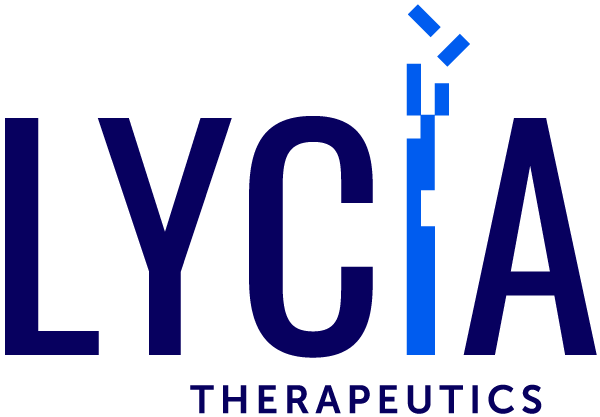Our Pipeline
We are building a pipeline of innovative therapies with the potential to rapidly and selectively eliminate disease-causing proteins. While LYTAC therapeutics can be designed to target a broad spectrum of indications, our initial focus is autoimmune and inflammatory diseases with high unmet need.
| Program | Target / Mechanism | Indication(s) | Discovery/Lead ID | Lead Optimization | IND Enabling | Phase 1 |
|---|---|---|---|---|---|---|
| LCA-0061 | Immunoglobulin ECataLYTACTM Degrader | Allergic Diseases | ||||
| LCA-0321 | a-TSHR AAbsLYTAC degrader | Graves’ Disease | ||||
| LCA-0391 | a-MuSK AAbsLYTAC degrader | MuSK+ Myasthenia Gravis | DC | |||
| Multiple | Antigen-specific AAbsLYTAC Degrader | Autoimmune Diseases | ||||
| Multiple | Undisclosed CataLYTACTM Degrader | Inflammatory Diseases | ||||
| LCA-0061 | |||
|---|---|---|---|
| Discovery/Lead ID | Lead Optimization | IND Enabling | Phase 1 |
Target: Immunoglobulin E Mechanism: CataLYTACTM Degrader Indication(s): Allergic Diseases | |||
| LCA-0321 | |||
| Discovery/Lead ID | Lead Optimization | IND Enabling | Phase 1 |
Target: a-TSHR AAbs Mechanism: LYTAC degrader Indication(s): Graves’ Disease | |||
| LCA-0391 | |||
| Discovery/Lead ID | Lead Optimization | IND Enabling | Phase 1 |
Target: a-MuSK AAbs Mechanism: LYTAC degrader Indication(s): MuSK+ Myasthenia Gravis | |||
DC |
|||
| Multiple | |||
| Discovery/Lead ID | Lead Optimization | IND Enabling | Phase 1 |
Target: Antigen-specific AAbs Mechanism: LYTAC Degrader Indication(s): Autoimmune Diseases | |||
| Multiple | |||
| Discovery/Lead ID | Lead Optimization | IND Enabling | Phase 1 |
Target: Undisclosed Mechanism: CataLYTACTM Degrader Indication(s): Inflammatory Diseases | |||
The safety and efficacy of the above agents are under investigation and have not been established.
AAbs = autoantibodies; MuSK = muscle-specific kinase; TSHR = thyroid-stimulating hormone receptor; DC = development candidate
LCA-0061: A Potential Treatment for Allergic Diseases including Food Allergy
Designed as a CataLYTACTM degrader, LCA-0061 is engineered to bind and eliminate high levels of IgE, preventing severe allergic reactions. We are developing LCA-0061 as a potential treatment for IgE-mediated food allergy and other allergic and immune-mediated diseases, such as allergic asthma and chronic spontaneous urticaria.
Our preclinical data in non-human primates showed that a single dose of LCA-0061 resulted in rapid, durable and near-complete elimination of both total and free IgE. This outcome stands in contrast to IgE-blocking approaches, such as omalizumab (Xolair®), which may result in stabilization, but not reduction, of total IgE, and only a transient impact on free IgE. Xolair® is currently indicated for only a subset of patients based on their IgE levels.
We believe LCA-0061, given its catalytic degradation mechanism, has the potential to be a more effective treatment for food allergies than IgE blockers, and can thereby offer broader accessibility to patients regardless of their total IgE levels and body weight.
We plan to initiate a Phase 1 clinical trial to investigate the safety and tolerability of LCA-0061 and assess effect on biomarkers of activity in participants with elevated IgE.
LCA-0321: A Potential Treatment for Graves’ Disease and Thyroid Eye Disease (TED)
LCA-0321 is designed to specifically bind and rapidly eliminate the disease-causing Thyroid Stimulating Hormone Receptor (TSHR) autoantibodies that attack the thyroid and prevent excessive thyroid hormone production, without causing general immunosuppression. We are developing LCA-0321 as a potential treatment for Graves’ disease and its extrathyroidal manifestations, including TED.
Our preclinical data using Graves’ disease patient-derived autoantibodies showed that LCA-0321 rapidly and selectively eliminated these autoantibodies in both mice and human cells. We believe that by removing these autoantibodies, we can help restore normal function to the thyroid and other affected tissues, such as the eye in patients with TED.
We plan to initiate a Phase 1 clinical trial of LCA-0321 to assess the safety, tolerability and potential impact on critical biomarkers of LCA-0321.
